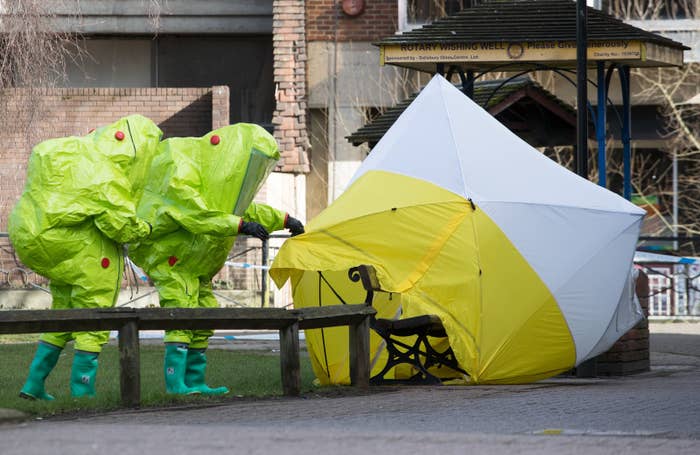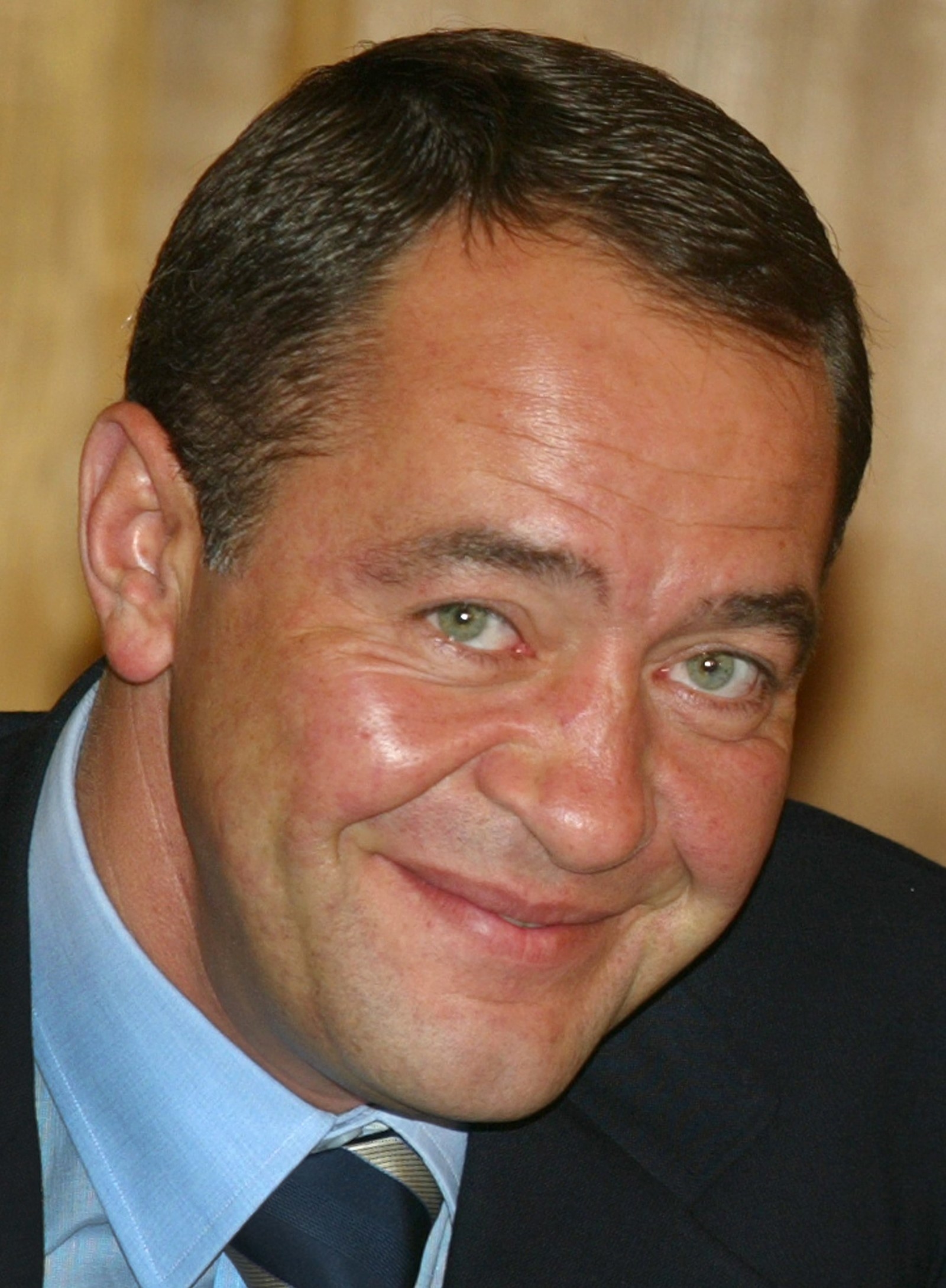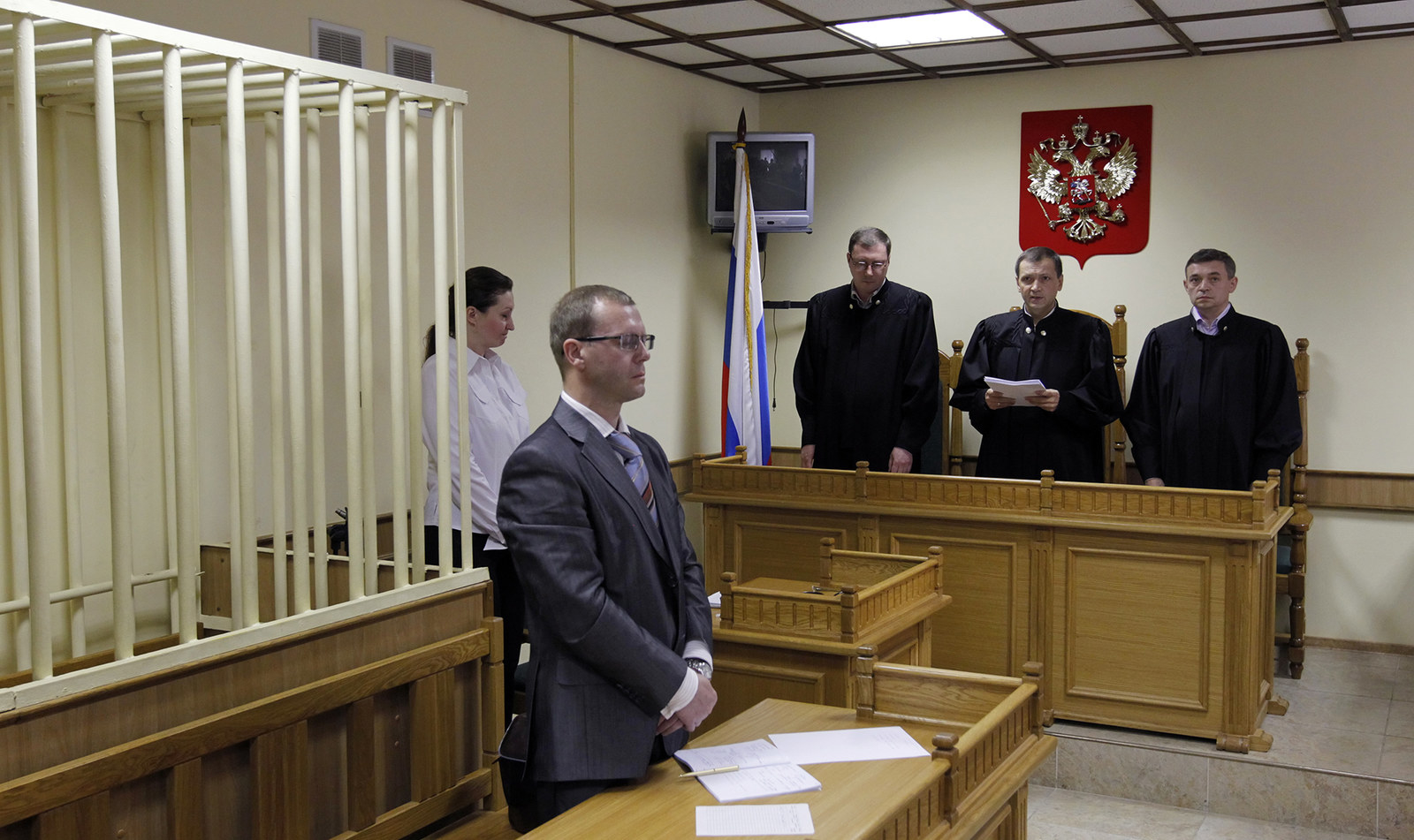At 10:30 a.m. on Oct. 9, 2016, a 64-year-old master spy and known scourge of the Kremlin ambled into a Walmart in Florida and acquired a recreational fishing license.
For the right to fish along the saltwater shoreline, Alexander Poteyev disclosed his real name and date of birth, as well as a phone number, email, and mailing address — an odd choice, because Poteyev was hiding from Russian assassins.
Moscow had outed Poteyev as a traitor who exposed a network of undercover agents, including the glamorous Anna Chapman, before he defected to the US in 2010. A few years later, according to news accounts and US intelligence sources, a suspected Kremlin hit man approached his home. Then, in July 2016, Russian state TV declared that Poteyev had died. But in fact, he was very much alive.
The Kremlin crushes traitors. That promise, central to Russian President Vladimir Putin’s image, is backed up by a grim and growing list of enemies who have died or fallen ill in suspicious circumstances — most recently the poisoning of former Russian intelligence officer Sergei Skripal in England. By publicizing a turncoat’s death (real or otherwise), the Kremlin could claim a public relations victory while sending a warning to anyone considering similar actions. The BBC reported earlier this week on another possible incentive for the disinformation: The news might smoke the target out by prompting him to reach out to his relatives back home.

The bizarre case of Poteyev, however, also illuminates a rare moment in the spy-vs.-spy annals of international relations — a moment when US intelligence chose to support Russian propaganda.
BuzzFeed News first started reporting on Poteyev last year for a series of articles on UK and US deaths that intelligence sources suspect were Russian hit jobs. After discovering that Poteyev was in fact still alive, the reporters approached the CIA for comment. Officials there requested that the information not be published, on the grounds that revealing his name or personal details would increase the threat to Poteyev’s life, and BuzzFeed News agreed.
The officials said that allowing Moscow’s triumphal claims of a traitor’s death to go unchallenged — and thus allowing their vulnerable asset to maintain a low profile — was the best way to ensure his safety.
But that plan depended on the truth not leaking out — and on Poteyev keeping his own identity under wraps.
The BBC reported that Poteyev’s whereabouts have been a “closely-guarded secret” ever since he arrived in the US. Yet the fishing license and other public records suggest that, to the contrary, Poteyev has lived openly under his own name. The date of birth given for the fishing license — applied for just three months after his death was announced — matches a date of birth given in earlier Russian media accounts. He gave his middle name as “Nick,” which appears to be an anglicization of his known Russian second name, Nikolaevich.
Around this time, Poteyev also registered to vote in the 2016 election as a Republican, again giving personal details that match the Russian defector. (Records indicate that he voted, although who he voted for is confidential.) In public records, he has given an address of a property that is easily traced to a family member.
For such a high-value international target, this is a remarkable degree of exposure. It’s unclear why he’s living so openly, but intelligence sources said it was his choice. That’s a big risk, akin to dangling “a goat in tiger country,” as Mark Galeotti, an expert in Russia’s security services, told BuzzFeed News last year.
Last month, the New York Times reported that American spies had scrambled to protect a Russian defector after a suspected assassin had approached his house and traveled to a city where his relatives lived. This week, the BBC named Poteyev as that endangered defector, still very much alive despite his 2016 obituaries. Intelligence sources confirmed to BuzzFeed News that Poteyev is indeed that defector.
Federal law enforcement provides round-the-clock protection not just to Poteyev but to a group of Russian defectors in the US, all of whom American intelligence believe are being hunted by Vladimir Putin’s assassins.
Each year, the US government takes in up to 100 defectors, many of them Russian, under its PL110 resettlement program.
They typically get new names and passports to protect their identities, as well as assistance encrypting their communications, finding jobs and schools, arranging psychiatric support if needed. In some cases, the US government may even offer them plastic surgery to make them less recognizable. In a handful of cases where defectors are judged to be under “direct threat” from the Kremlin, the government also provides 24-hour guards.
Kremlin spies have in recent years found a number of Russian informants who had relocated to the United States, according to the Times; in response, counterintelligence officials conducted a “wide-reaching review” to find ways to improve the security of these individuals.

Previously, US officials had believed that the Kremlin would not go so far as to target defectors on American soil. Yet one death in America has already raised alarms. Vladimir Putin’s former media czar Mikhail Lesin was found dead in his Washington, DC, hotel room in 2015 with blunt force trauma to the head, neck, legs, arms, and torso.
Authorities announced that the death was an alcohol-related accident. But multiple current and former FBI agents and intelligence officials told BuzzFeed News last year that he was bludgeoned to death on the eve of a planned interview with officials from the Department of Justice, who had invited him to Washington to discuss the inner workings of the Kremlin-funded network Russia Today. Additionally, Christopher Steele, the former British intelligence officer and the author of the famous Trump dossier, provided a secret report to the FBI asserting that Lesin was bludgeoned to death by thugs hired by an oligarch close to Putin. The CIA has declined to comment on Lesin’s death.
Until recently, it seemed that Poteyev had joined Lesin on the lengthy list of Russians who fell afoul of Putin and then died unexpectedly. But what really happened is more surprising.

In 2000, Poteyev earned a coveted position with the Russian Foreign Intelligence Service, according to Russian media reports: deputy head of the ultra-secretive department known as Directorate S. His department oversaw a network of spies inside the United States who were playing a very long game.
After extensive training abroad, the agents arrived in the US under fake identities. Working in pairs and posing as married couples, their aim was to blend into their surroundings perfectly. They bought homes in leafy suburbs, took vanilla day jobs — travel agent, financial planner, college professor — and even raised families.
One younger agent, Anna Kushchyenko, took a slightly different tack. She presented herself as Russian but married a British man and took his surname, becoming Anna Chapman. She moved to Manhattan, a block away from Wall Street, and posed as the CEO of an international real estate company called PropertyFinder Ltd.

Chapman’s Russian handler went by the name of Roman. They communicated only on Wednesdays, and never face-to-face. Instead, she would bring her laptop with her to a public place, such as Macy’s or Barnes & Noble. Roman would pull up nearby, sometimes in a white minivan. Once he was within range, the two would get on the same encrypted wireless network and send each other messages. Then Roman would disappear, and Chapman would continue about her day. Other agents deployed more old-school Cold War spycraft tactics: dead drops, brush passes, ciphers.
Poteyev’s department ran the network from Moscow. He was born in Belarus at the tail end of the Stalin era, and his father was a war hero who won the Soviet Union’s most prestigious honor for destroying nine Nazi tanks during World War II, according to a Russian security services website. After graduating from the KGB academy in Minsk, Poteyev added to the family medal collection with a Red Star for his efforts fighting for an elite unit known as “Zenit” during Russia’s long and bloody war in Afghanistan. After the Soviet Union crumbled, Poteyev climbed the ranks of the Foreign Intelligence Service. For a time in the 1990s, he was posted to the US.
His new position had him back in Moscow, where bosses sent instructions to their agents in America through coded messages. One 2009 missive to two agents laid bare their ultimate objective: “Your education, bank accounts, car, house etc. — All these serve one goal: fulfill your main mission, i.e. to search and develop ties in policymaking circles in US.”
They were getting close. The agent posing as a financial planner had started to build a work relationship with a prominent New York financier who was a personal friend of a US cabinet official. Moscow was pleased, replying, “Of course he is very interesting ‘target.’” Perhaps he could pass along remarks about American foreign policy, headquarters suggested, or rumors about internal White House affairs. “Try to build up little by little relations with him.”
Then one Saturday morning in June 2010, Anna Chapman got a phone call from Roman requesting an urgent meeting. At a coffee shop in downtown Manhattan that afternoon, he gave her an assignment to hand off a fake passport to another agent the next morning. Chapman was to go to a grassy location and hold up a particular magazine so that the other agent would recognize her. Roman explained the code they would use: “She will ask you, ‘Excuse me, but haven’t we met in California last summer?’ And you will say to her, ‘No, I think it was the Hamptons.’”
The rendezvous spooked Chapman. Not only did it violate Roman’s rules — communicate only on Wednesdays, and never in person — but the new assignment was much bolder than any that had come before. She called her father, an official in the Russian Ministry of Foreign Affairs, to relay her concerns.
Her instincts were right: The man she met with was not the real Roman, but rather an undercover FBI agent. But it was too late. The Americans were listening in on her call with her father, and the next day agents swooped in, arresting Chapman and nine other Directorate S agents around Washington, New York, and Boston.
It soon emerged that the FBI had tracked the spy network for years as part of “Operation Ghost Stories,” codenamed after the spies’ tendency to assume identities of the dead. Two weeks later, the spies pled guilty in a federal court in Manhattan and were whisked away to Russia in what became known as the largest spy swap in history, done speedily in part to preserve the Obama administration’s delicate plans to “reset” relations with Moscow.
The extensive Western news coverage made the most of the story, and in particular the red-haired Chapman’s looks. Tabloids plastered pictures of her across their front pages, with headlines such as “The Spy Who Loved Us” and “‘Red’ Head.” On late-night TV television Jay Leno asked Vice President Joe Biden, “Do we have any spies that hot?” Biden replied, “It was not my idea to send her back.” (Chapman has since become a model and television presenter, and the Directorate S program has inspired the award-winning television series The Americans.)
As Americans gloated, in Moscow the focus was on who blew the illegals’ covers. That fall, Russian media quoted intelligence sources naming the culprit: Alexander Poteyev. The Americans had reportedly recruited Poteyev years ago, and used what he told them to mount a counteroperation.
Russian journalists soon built a detailed account of his escape. Right as the FBI was plotting the arrests of Chapman and the other illegals, these reports said, Poteyev asked his bosses for an impromptu vacation and boarded a train to Minsk. From there he went to Ukraine, where he acquired a fake passport with the last name of Dudochkin. Then he made it to a CIA apartment in Frankfurt, before finding his way to America.
Vladimir Putin deplored the double cross in a television interview. “The man betrayed his friends, comrades in arms, and the people who sacrificed their lives for the motherland!” Putin said. “And here we have a brute who betrays such people! How can he look into the eyes of his children? Pig.”
The next year, a military court held a trial by absentia during which Poteyev was convicted of treason and sentenced to 25 years in prison. In court, the judge read out a text message that he said Poteyev had sent his wife: “try to take it calmly. I am leaving not for some time, but forever. I didn’t want to, but I had to. I am starting a new life, and I will try to help the children.”

By the time of his conviction, Poteyev was apparently long gone, off to start life anew in the country he had served as double agent. Sometime after he settled in the US, the Russian hit man arrived at his home, according to the recent New York Times and BBC stories. The Times reported that he “and at least one other former C.I.A. asset” later moved somewhere else, with the help of the CIA’s National Resettlement Operations Center.
According to the Times, that incident occurred “about four years ago.” A couple of years after that, an announcer on Russian state media crowed that Poteyev had met a “sorry end,” becoming one more example of how “life punishes traitors.”
Yet the report was curiously short of details, such as where he lived or how he died. This fueled speculation among Moscow’s national security establishment. “I’m still inclined to think that this death was caused by constant stress,” former FSB director Nikolai Kovalev told the news agency RIA Novosti. “Nobody needed him,” said another former intelligence agent, Igor Morozov, “so to work out an operation to eliminate him would be too great an honour for Poteyev.” A former KGB colonel called Poteyev a “swamp louse.”
The American media barely covered the news of his apparent death. One article did quote a theory from a historian named Andrei Soldatov, who said that the Americans probably passed news of Poteyev’s death along to relatives still living in Russia, and the government had intercepted the communication. “Then the Russian secret services decided to seize the opportunity to send a message,” Soldatov said, “that it always ends badly when you defect.”
Poteyev’s name joined the growing list of enemies of Putin’s government who had died in recent years. A front-page article in the New York Times in August 2017 cited his reported death as one of many examples of the dark trend.
The day after that article ran, Poteyev left the first big clue that he was still very much alive.

In March of last year, BuzzFeed News put the name “Alexander Poteyev” into public records databases. The searches turned up exactly one man by that name in the United States, and it was clear that there had been little trace of this person until recently. There were addresses in Massachusetts, Arizona, and Virginia going back to October 2010, three months after the news of Directorate S broke. But if he did indeed live in those places, he was renting — and doing little else that would kick up a trail.
That changed in 2016. In January, he was pulled over in a Lexus and given a traffic ticket. Then, after he was supposed to have died, he left a trail of public breadcrumbs: He registered to vote in August, got his fishing license in October, and voted in November.
The obvious question: Was this Alexander Poteyev the double agent, or some other Alexander Poteyev? Most of the original Russian news accounts said he was born on March 7, 1952, though a couple said it was March 3 of that year. His middle name was “Nikolaievich.”
Documents in Florida matched this biography. For both his traffic ticket and his voter registration Poteyev gave a date of birth of March 7, 1952. The middle name he gave was “Nick,” an apparent Americanization of “Nikolaievich.” Public records showed an email address and phone number linked to his name, but attempts to reach him in those ways were unsuccessful.
His home address was for a property registered to a relative. Another apartment in the complex is registered to another family member. So one day last spring BuzzFeed News approached the front desk of an apartment complex and asked to visit Poteyev. The concierge on duty declined, saying that an “Alex” lived at that address but typically came down to the lobby only if he was expecting someone. On a later visit, a different concierge allowed a reporter upstairs, accompanied by a building security guard. An older woman opened the door. Asked whether Alexander Poteyev was available, she replied, “And who are you?” Hearing that her visitor was a journalist, she immediately shut the door, saying, “No, no, no.”
On a subsequent visit, the concierge called up to the apartment and a male voice answered the phone. The concierge hung up and declared that Alex did not want to speak with BuzzFeed News. Alex was not in Florida, the concierge reported. He wouldn’t be back until the following spring.
BuzzFeed News also visited the apartment of one of his relatives. Again, a concierge called up to the apartment but this time handed over the phone. Hearing that it was a journalist from BuzzFeed News, the family member asked whether this was about the “crazy stories,” but agreed to pass a phone number to Poteyev. “I’ll get back to you,” the family member said, and hung up. Subsequent requests for comment, including a recent one, went unanswered. ●


